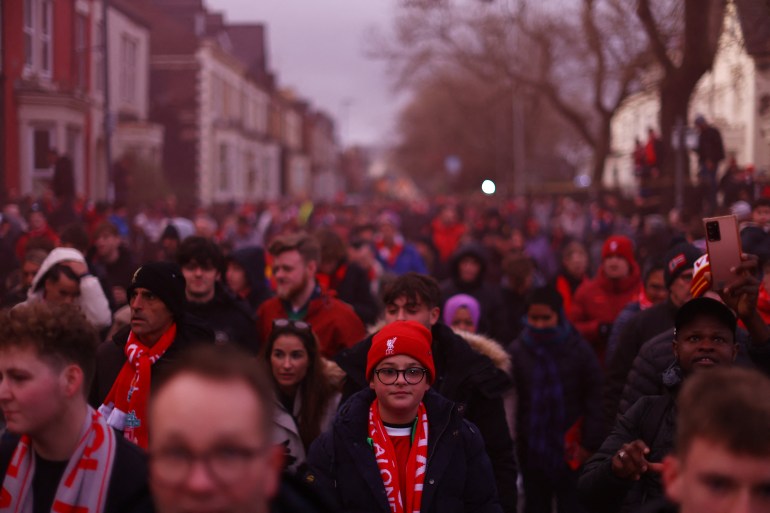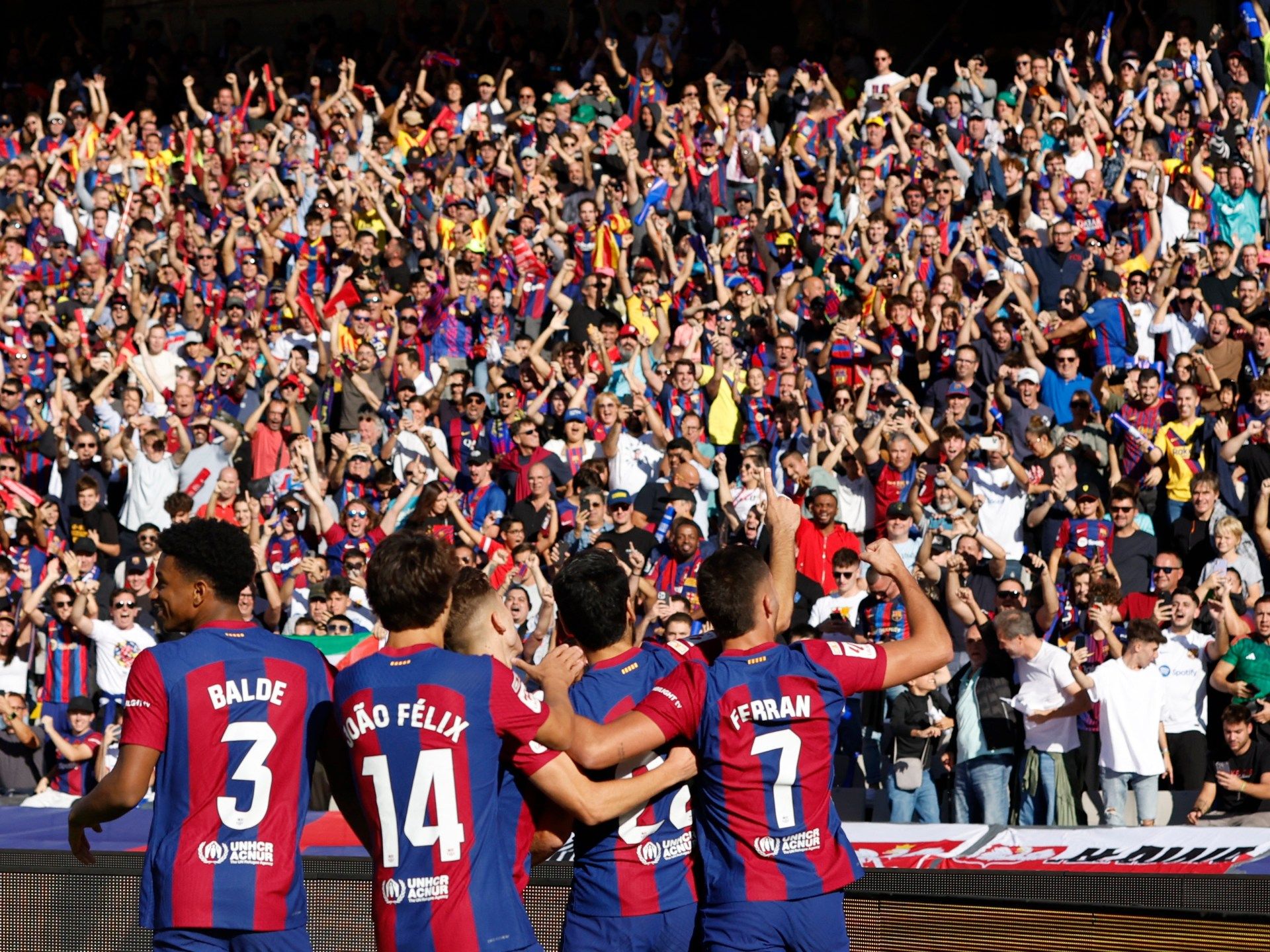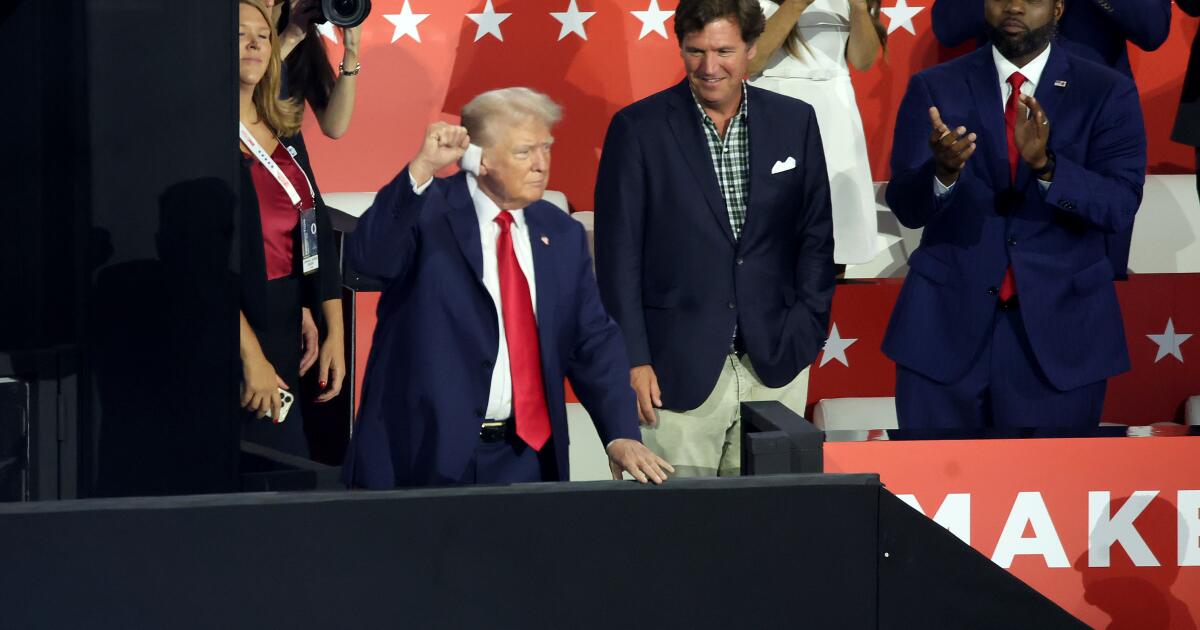European football’s governing body UEFA is about to “lose a lot of power” following a recent court ruling over a breakaway league, experts have said, as the continental body’s former monopoly on the management of the sport faces to a new challenge. .
The European Court of Justice (ECJ) ruled that the Union of European Football Associations (UEFA) and the world governing body, the Fédération Internationale de Football Association (FIFA), violated European Union laws by preventing the formation of the Super League in 2021, when 12 of Europe’s top football clubs, including Manchester United and Bayern Munich, announced that they had signed up for the planned league, sending shockwaves through the sport.
UEFA and FIFA were considered to have abused their dominant position by banning clubs from participating in the “closed” league, according to the initial proposal.
Following protests from fans, widespread condemnation and a stern warning from UEFA that participating clubs and players would be excluded from competitions such as the World Cup, the project failed.
Within 48 hours, nine of the 12 rebel clubs (including six from England’s Premier League) backed down and the project collapsed. The league’s promoters, A22 Sports Management, launched a legal appeal before the Spanish courts, which referred the matter to the Luxembourg-based Court of Justice.
Judgment on UEFA’s ‘abuse of power’
Sports management and economic experts believe the court’s “very firm ruling” demonstrates that UEFA’s long-standing monopoly over the management of the game on the continent can be challenged, but the fate of the breakaway project remains uncertain.
“It is a ruling on the abuse of power by UEFA,” JD Tena, senior lecturer in sports management and business at the University of Liverpool, told Al Jazeera.
“It is difficult to predict what will happen in the future, but it is not difficult to imagine that UEFA will lose a lot of power in terms of organization and control of competitions.”
UEFA, which has organized pan-European competitions for almost 70 years, sees the Super League as a threat to its iconic Champions League and has launched a major overhaul of the competition.
From 2024-25, the Champions League will include 36 teams instead of 32. Clubs will play in a single league competition, replacing the current group stage and guaranteeing at least eight games for each team.
UEFA has said that the ECJ ruling does not amount to an endorsement or validation of the Super League, but rather addresses a “pre-existing deficit” within the UEFA framework, which it said it had subsequently corrected in June 2022.
“UEFA remains steadfast in its commitment to defend the pyramid of European football, ensuring that it continues to serve the broader interests of society,” UEFA said in a statement.
—UEFA (@UEFA) December 21, 2023
‘Reputational damage’
While Super League organizers were elated by the ECJ’s unexpected reprieve, major leagues and clubs acted to support the status quo.
Premier League side Manchester United were among the first to say they remained committed to playing in UEFA-run competitions, as was Bundesliga champion Bayern Munich.
France’s Ligue de Football Professionnel (LFP) said it “unequivocally supports” competitions organized by UEFA, while the European Club Association, which represents almost 500 clubs across the continent, said world football had ” left the Super League behind years ago.
Real Madrid and Barcelona of the Spanish League are the only clubs that have shown strong support for the proposed league, which analysts say suffered considerable “reputation damage” in 2021.
“For the Super League or any other breakaway league to be alive, there needs to be a legal and financial case for it. And I think the financial argument is starting to look a little shaky,” Christina Philippou, professor of accounting, economics and finance at the University of Portsmouth, told Al Jazeera.
Philippou believes that despite interest from several big clubs, the league’s image has suffered a serious blow.
“Potential partners will need strong guarantees and will weigh the risk,” he said.
Sports management expert Tena considers the Super League proposal to be “very interesting,” but it is difficult to predict which clubs would be interested in joining it.
“This is like a game of poker. You don’t know what the real feeling is about it,” Tena said.
“Many of these clubs that are now against the Super League were involved in the initial process; They suddenly moved when they were threatened by UEFA. “So we don’t know if, in a free environment, they will freely choose to join the Super League.”
New format
Following the CJEU ruling, A22 announced a rebooted version of the Super League, introducing promotions and relegations that were missing from its initial proposal. He also tried to win over fans by promising free matches.
The proposed format for the men’s competition includes 64 teams in three leagues: Star, Gold and Blue. The Star and Gold Leagues will have 16 clubs each, while the Blue League will have 32 clubs. The women’s competition would have two leagues of 16 clubs each.
However, the revamped structure and appeal of free matches may not be enough to excite football fans.
“It feels a bit like flogging a dead horse in terms of pursuing the idea of the European Super League,” Mark Middling, senior lecturer in accounting at Northumbria University, said of the new proposals.
“The new format, still, seems like too much of a compromise. If you are in that Star League at the top, it is still going to be very difficult for that team to relegate from European football.
“So even if a team is doing poorly in their domestic league, they could still be in the upper echelons of the European league, as far as I know. “It almost takes away the romance of football.”
Tena, for his part, believes that the Super League could attract fans and sponsors, since the format would include matches involving big clubs from the first day.
“People are afraid of new things. When the European Cup, which is now the Champions League, was created, people feared it would destroy the national leagues. But in the end it became a great idea,” he said.
“The EuroLeague basketball game, which is semi-closed, is a good experiment and people enjoy it. People also really enjoy American leagues that have closed formats. “So it’s only a matter of time before people realize that the Super League is not as bad as they expected.”
“It’s not going to be accepted by the fans”
The CJEU has said that its ruling does not necessarily mean that the Super League project must be approved and has left it to the Spanish courts to decide.
If it gets the green light from the courts, Philippou expects the breakaway league to face financial challenges, especially in commercial and broadcast rights.
“Broadcasting rights tend to consolidate,” he said. “In a new league, organizers are going to have some problems trying to get broadcast deals.
“In addition, established broadcasters will not want to dilute a product they already have. So if they have the Champions League rights, they won’t necessarily want to dilute them by bidding for other leagues.
“If you look at all the broadcast rights except the Premier League, they have gone in a sort of flat direction, which is not good for new entrants.”
Philippou added that the Super League could have more scope to boost the women’s competition, but with its own challenges.
“There is a less entrenched market and a long-term history of people seeing a particular competition in women’s football,” he said. “But that’s where it gets complicated because, in Europe, a lot of women’s teams are affiliated with men’s teams.
“The women’s team could benefit more from joining the Super League, but since the men’s team would not want to be associated with it, the women’s teams will not be able to play.” [in it].”
While many challenges await the Super League, fan resistance could once again be its biggest obstacle.
Football Supporters Europe (FSE) has stood firm against the Super League since 2021 and has called for greater protection of the game, while UK-based campaign group Fair Game believes the Super League does not serve wider interests. of sport.
“You can have all the legal contracts you want, but if the fans don’t accept them, it won’t work,” said Middling, who is also part of Fair Game.
“I think too much damage was done in the initial launch, and everything related to the European Super League is so tainted that it will not be accepted by the fans.”













